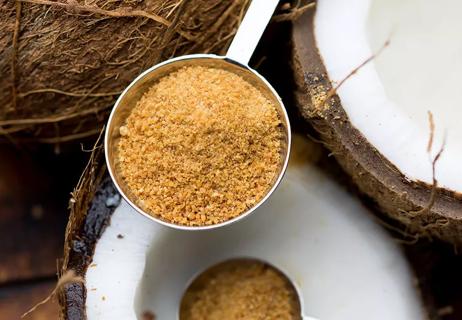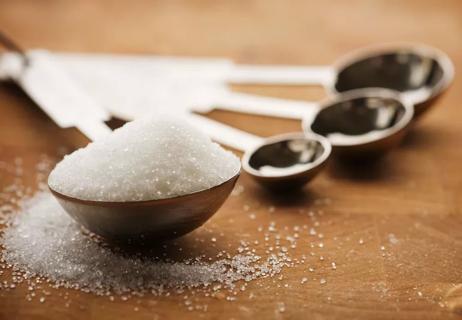A high-sugar diet can trigger a chain reaction that may raise your risk

Our relationship with sugar can be a tough one. We know that it’s not good to have too much of it. But we also know our bodies and our brains crave it. And let’s be real ... it’s delicious.
Advertisement
Cleveland Clinic is a non-profit academic medical center. Advertising on our site helps support our mission. We do not endorse non-Cleveland Clinic products or services. Policy
So, when you hear that sugar causes cancer or feeds cancer cells, you can’t help but feel torn as you stare longingly at the bakery case.
But is it true? Does eating sugar cause cancer?
Oncology dietitian Michela Palma, RD, LD, explains the connection.
Sugar doesn’t directly cause cancer. At least not in the way that smoking or sun exposure does.
In the United States, the National Toxicology Program (NTP) publishes lists of known and possible carcinogens (substances that cause cancer). Sugar doesn’t make the cut.
That’s the quick answer.
The full answer is more complex.
“It’s not that sugar causes cancer, it’s that excess sugar leads to excess calories. This can lead to excessive weight gain and metabolic syndrome — and that can increase cancer risk,” Palma explains.
In other words, eating sugar doesn’t give you cancer. But a high-sugar diet can set off a chain reaction that raises your risk.
Foods that are high in added sugar include sweet treats and sugar-sweetened beverages. Additional risk comes from eating an excess amount of simple carbohydrates, which also includes refined grains.
Let’s look at it step by step.
Advertisement
So, no, it’s not as simple as eat-sugar/get-cancer.
It’s more like eat-too-much-added-sugar/get-excess-calories/raise-your-risk-for-chronic-conditions-that-raise-your-risk-for-cancer.
Even if sugar doesn’t necessarily cause cancer, does it help cancer grow and spread?
Yes and no.
“Yes, cancer cells feed on sugar, but so does every other cell in your body,” Palma clarifies. “In fact, cancer cells will also feed off of protein and fat as well. So, if you cut out sugar to ‘starve the cancer,’ you can also deprive the rest of your body of the nutrients it needs. You can’t starve the cancer without starving your healthy cells, too.”
Now, we’re not talking about your body needing sugar bombs like candy or double chocolate chip cookies. Refined, added sugars aren’t what your body needs.
But the complex carbohydrates you get from foods like fruit and whole grains? Your body uses the nutrients in those foods — sugar included — to keep you going. And when you have cancer — particularly if you’re undergoing treatments like radiation, chemotherapy or immunotherapy — you don’t want to deprive your body of much-needed fuel.
“A lot of people who undergo cancer treatment are at risk for malnutrition,” Palma points out. “It’s very important to nourish your body and fuel yourself well to keep your immune system strong and tolerate the treatment.”
Even if sugar doesn’t immediately lead to cancer, it’s still important to be mindful of how much you’re eating. Keeping your intake at a healthy level can help you avoid a host of health concerns, cancer included.
Palma offers these tips to follow a sugar-smart diet.
Advertisement
Sugar doesn’t exactly give you cancer. But a diet full of refined sugars isn’t doing you or your cancer risk any favors.
If you’re concerned about how your diet and sugar intake are affecting your health and your risk for cancer and other conditions, talk with a healthcare provider. They can help you find the sweet spot between too much sugar and just enough to keep your body healthy and your sweet tooth satisfied.
Advertisement
Learn more about our editorial process.
Advertisement

You can reduce how much added sugar you consume by tracking what you eat, reading labels and limiting portions of the sweet stuff

A high intake of sugar can cause an increase in ‘bad’ cholesterol and a decrease in ‘good’ cholesterol

Often labeled as ‘diabetes-friendly’ or ‘calorie-free,’ these sugar substitutes warrant caution

There is an indirect link between the sweet substance and the condition

It’s touted as a healthier alternative to cane sugar, but basically, well ... it’s still just sugar

Sugary foods don’t always taste sweet, and they may not say ‘sugar’ on the label

Don’t skip meals or go ‘cold turkey’ — eat a balanced diet and talk to your doctor instead

Fuel your body with healthy options that combine fiber-rich carbs, lean protein and healthy fats

Wearing a scarf, adjusting your outdoor activities and following your asthma treatment plan can help limit breathing problems

Your diet in the weeks, days and hours ahead of your race can power you to the finish line

When someone guilt trips you, they’re using emotionally manipulative behavior to try to get you to act a certain way